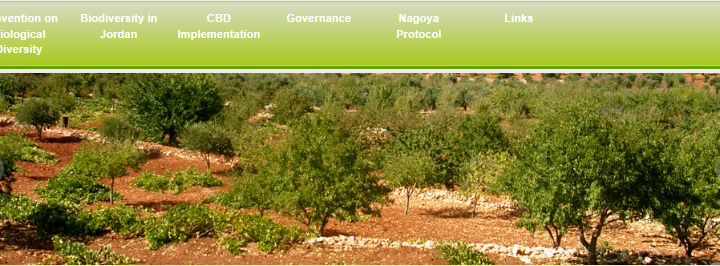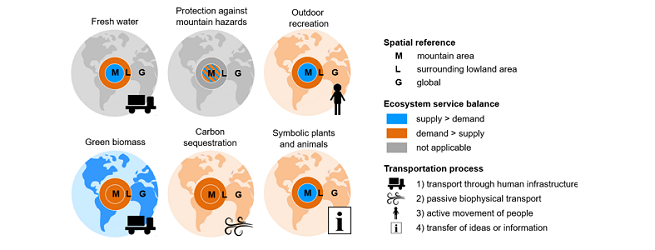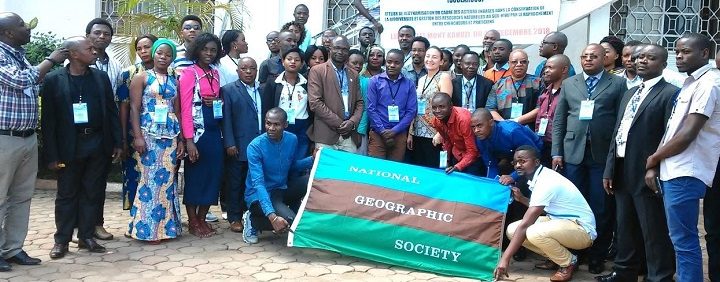Jordan is a Party to the UN’s Convention on Biological Diversity (CBD), having signed the Convention in 1992, and ratified it on 12 November 1993. As Party to the Convention, Jordan is required to implement the CBD’s articles as well as the relevant decisions of the Conference of the Parties (COP). During COP10, which took place in October 2010 in Nagoya, Japan, Parties adopted the mission, goals and objectives of the CBD Clearing House Mechanism (CHM) for the period 2011- 2020. The mission of CHM for the period 2011-2020 is to contribute significantly to the implementation of the CBD and [Read more…] about Launching of the Jordan Clearing House Mechanism of Biodiversity (“JO-CHM”)
Member post
Improving ecosystem assessments in Mediterranean socio-ecological systems: new publication of the ESP Mediterranean working group
Members of the ESP Mediterranean working group have just published an article in Ecosystems and People. The paper presents a Driver-Pressure-State-Impact-Response (DPSIR) methodology that seeks to provide guidance for better ecosystem assessments encompassing the Mediterranean region (e.g. the recently approved IPBES global assessment or the IPBES regional assessments). This work is the result of the joint efforts by many ESP Mediterranean members to collect comprehensive information about the complexity and uniqueness of Mediterranean socio-ecological systems. The original idea of this study has its origin in a workshop held in the 2016 European ESP conference in Antwerp. The publication is open-access and can be downloaded from here.
New paper: A transnational perspective of global and regional ecosystem service flows from and to mountain regions
The spatial relationships of ecosystem services are complex and poorly understood due to spatial mismatches between areas of provision and the areas that benefit. In this study, we assess the spatial flows of six key ecosystem services from and to mountain regions at the regional and global level. We identify major directions of spatial flow and illustrate different types and transfer mechanisms with detailed examples focusing on the European Alps and surrounding lowlands. [Read more…] about New paper: A transnational perspective of global and regional ecosystem service flows from and to mountain regions
World Water Development Report 2019 with input from ESP sectoral WG 5
Dr. Nidhi Nagabhatla from SWG 5 – ES in Water management contributed to the 2019 edition of the World Water Development Report (WWDR 2019) entitled ‘Leaving No One Behind’. The synthesis is meant to inform policy and decision-makers, the water community about innovative and place-based fit-to purpose solution for water resources management, those that can improve access to water supply and sanitation, help to overcome poverty and to address various other social and economic inequities.
Leading Chapter 2 of the report (accessible here), she has outlined a narrative of how physical and environmental dimensions in water management can be better tackled in an increasingly globalized world. The chapter also highlights incorporating ecological service aspects [Read more…] about World Water Development Report 2019 with input from ESP sectoral WG 5
Workshop on biodiversity conservation and natural resource management in South Kivu, DRC
Last month a workshop was held to revitalize the framework of the actors engaged in the conservation of biodiversity and management of natural resources in South Kivu in Democratic Republic of Congo DRC, aiming at bringing together between researchers and practitioners. Under the financial support of National Geographic Society and WWF, the workshop brought together environmental stakeholders in South Kivu, including the provincial ministry of the environment, the Governor’s Environmental Adviser, Congolese Institute for the Conservation of Nature (PNKB and RNI), a group of international and local conservation NGOs, and selected Universities and Institutes working in the conservation of biodiversity. [Read more…] about Workshop on biodiversity conservation and natural resource management in South Kivu, DRC





